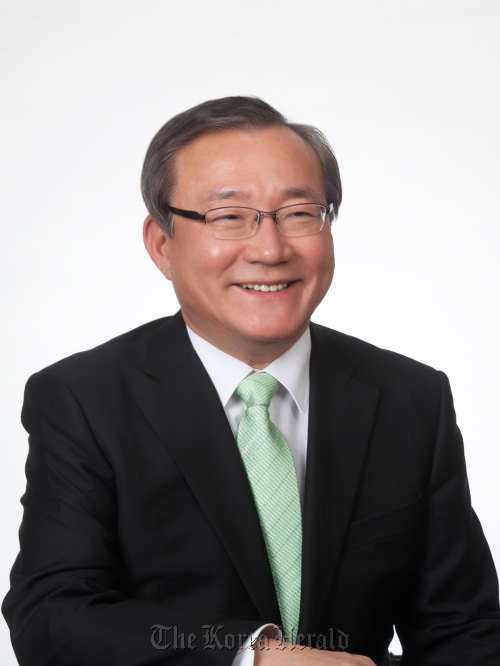‘Korea in need of more top-notch nuclear professionals’
By Korea HeraldPublished : March 26, 2012 - 20:02
More nations will consider building nuclear power plants, says scholar
Korea is running far short of high-skilled manpower for industrial use of nuclear energy, said Park Goon-cherl, president of the KEPCO International Nuclear Graduate School which opened early this month in Ulsan.
The nascent school established and funded by the Korea Electric Power Corp. and four other public power-related companies recruited 61 freshmen for this year, 29 of whom are overseas students recommended by their governments.
The 32 others are employees of nuclear power-related companies in Korea.
“The foreign students are from countries with high potential for nuclear power production such as Vietnam, Malaysia, South Africa, Thailand and Kenya, where Korea can export nuclear power plants in the future,” Park told The Korea Herald.
Korea is running far short of high-skilled manpower for industrial use of nuclear energy, said Park Goon-cherl, president of the KEPCO International Nuclear Graduate School which opened early this month in Ulsan.
The nascent school established and funded by the Korea Electric Power Corp. and four other public power-related companies recruited 61 freshmen for this year, 29 of whom are overseas students recommended by their governments.
The 32 others are employees of nuclear power-related companies in Korea.
“The foreign students are from countries with high potential for nuclear power production such as Vietnam, Malaysia, South Africa, Thailand and Kenya, where Korea can export nuclear power plants in the future,” Park told The Korea Herald.

“They are not just from power companies, but also from research institutes and schools. Some are civil servants.”
The KINGS plans to recruit 100 freshmen starting from next year.
The International Atomic Energy Agency said the world needs about 10,000 top-level professionals for the nuclear industry by 2030, according to Park.
“Korea needs more highly-educated experts to safely operate the 21 atomic power plants and to send abroad for overseas projects. We need them for designing, safety checkups and export negotiations,” he said.
The KINGS has partnerships for student and professor exchanges as well as research and development with George Mason University near Washington, D.C.
First-year students of the KINGS will go to George Mason to take system engineering courses during the summer for eight weeks. They will also make field trips to U.S. government institutions such as the Nuclear Regulatory Commission, meet with nuclear industry leaders and visit nuclear power facilities.
The KINGS is also tapping partnerships with the Virginia Nuclear Power Education Research Consortium, Massachusetts Institute of Technology and Berkeley University in addition to the IAEA, Institute of Nuclear Power Operations and the World Association of Nuclear Operators.
“We are seeking to join the IAEA’s nuclear energy engineer training programs in developing countries by sending our instructors and have IAEA officials come to give lectures here,” Park said.
Park, who served as professor of nuclear engineering at Seoul National University for nearly 30 years, is also a member of Korea’s Atomic Energy Commission and vice president of an association of exporters involved in nuclear power plants.
He is optimistic about Korea’s outlook for exports of nuclear power stations.
“We succeeded in exporting nuclear power plants to the United Arab Emirates, which shows that the safety of our facilities is globally recognized, and we are tapping into Indonesia and Vietnam among others,” Park said.
“A lot of countries are considering building nuclear power stations despite the Fukushima accident and I think the number will continue to increase. There was much hesitation over nuclear power after the Chernobyl accident, but it subsided after a few years.”
Because of the accidents, atomic power plants became safer, he said, adding that experts from the World Association of Nuclear Operators and the IAEA were surprised at the safety of Korean nuclear power plants during their inspection in 2008.
Park said opposition politicians vowing to lower dependence on nuclear energy were highly irresponsible.
“A responsible party would present alternatives, but they haven’t,” he said.
“Countries like Germany can give up on nuclear power because they have a strong renewable energy sector. We don’t.”
By Kim So-hyun (sophie@heraldcorp.com)
-
Articles by Korea Herald









![[Hello India] Hyundai Motor vows to boost 'clean mobility' in India](http://res.heraldm.com/phpwas/restmb_idxmake.php?idx=644&simg=/content/image/2024/04/25/20240425050672_0.jpg&u=)









